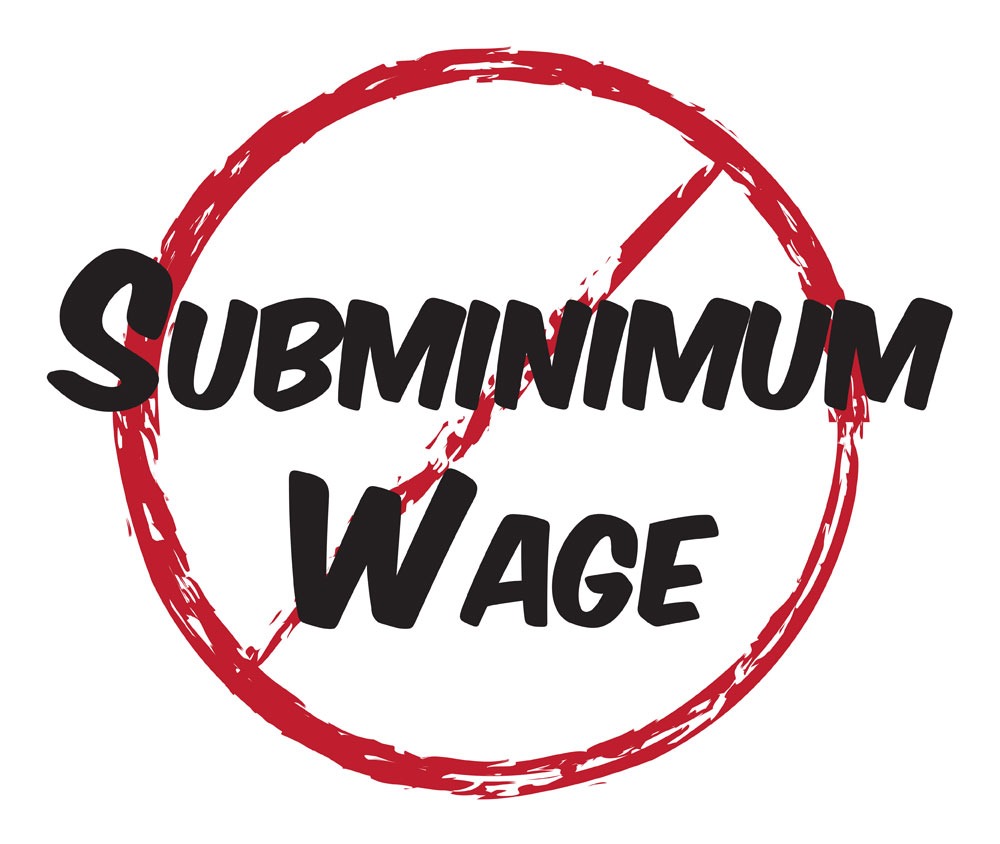
June 10, 2020; KTVZ-TV (Redmond, OR)
Once again—and, we hope, for the last time—the head of a nonprofit offering work opportunities to people with disabilities has tried to use a public threat to lay off workers to protest a state-mandated increase in the minimum wage.
Here is the letter Opportunity Foundation executive director Seth Johnson sent to stakeholders and shared with a local television station:
Dear Friends of the Opportunity Foundation,
Beginning July 1, 2020, the Opportunity Foundation of Central Oregon will no longer be a provider of paid Employment Path services at our thrift stores. Based on the State of Oregon’s guidance quoted here, no group services such as those we have offered at our stores are allowed at this time and there is no projected date for them to resume.
“Employment and DSA services in congregate (group) settings or at a provider site ODDS employment and day services in a congregate (group) setting or at a provider site will continue to be prohibited…The policy prohibiting Employment and DSA services at a provider site or in a congregate setting remain in place until further notice.”
Another reason for this change is that we are being required by new state law to phase out the use of sub minimum wage, which we also have used in our stores. We simply cannot afford to pay the increased new minimum wage, which also goes up every year.
The Opportunity Foundation will welcome all the people we have served back to our stores to participate in unpaid Employment Path and recreational programs whenever the state allows us to do so.
Sign up for our free newsletters
Subscribe to NPQ's newsletters to have our top stories delivered directly to your inbox.
By signing up, you agree to our privacy policy and terms of use, and to receive messages from NPQ and our partners.
We know this is a very difficult change. We will continue to pay wages to all supported workers through the end of June, based on their average earnings prior to the stores’ state mandated COVID 19 closure. This will be a difficult transition for us as well, but we need to follow the new legal requirements set forward by the state. Our hearts are with you in this difficult time.
State Rep. Jeff Reardon (D-Happy Valley), who cosponsored the bill, responded, “Are we going to be actually putting people with disabilities out of work? I would say, ‘No, I don’t think so.’ The reason for that is these quality rehabilitation facilities can contract with other state agencies, and this bill allows them to negotiate up to the minimum wage over a period of years.”
This kind of scare tactic is abjectly irresponsible, and has backfired in at least one eerily similar case concerning Sharon Durbin, the CEO of Land of Lincoln Goodwill in Illinois, which we covered in July of 2019:
In a one-woman attempt to forestall an already legislated minimum wage hike in Illinois, announced that rather than raise wages, [Durbin] would be laying off many of the disabled workers the nonprofit currently employs. The additional financial load, she said, was just too large. In fact, as it turned out, she had already sent a dozen workers with disabilities a letter saying they would no longer receive a paycheck and attributing their layoffs to the minimum wage increase.
In effect, she had used the employment of disabled workers as a pawn in her misguided attempt to try to shame the governor into reversing the new law, something which he could not do. Making matters worse, she essentially suggested that they could go on working—but not for pay.
Durbin did resign, but not before her organization’s contracts were put up for review by state agencies and Illinois’s two US senators, Dick Durbin and Tammy Duckworth, dressed her down publicly: “Your actions and statements call into question your judgement, your commitment to the organization’s mission, and your fitness to continue serving in your current leadership role,” they wrote.
Perhaps the story will end the same way at the Opportunity Foundation. Others should take heed. This exploitive tactic should not be tolerated by board members, funders or other stakeholders.—Ruth McCambridge












